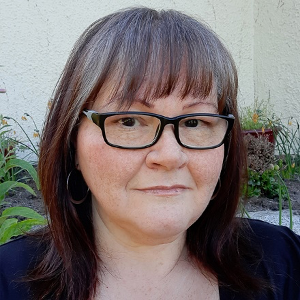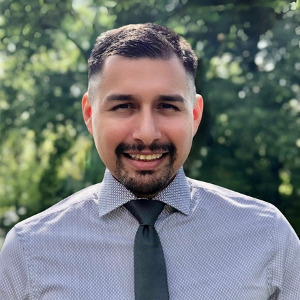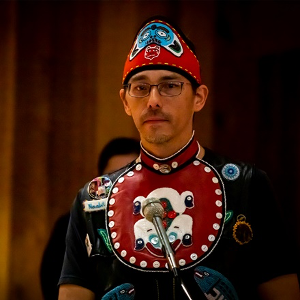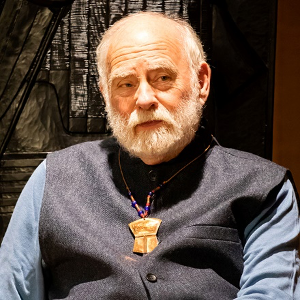Sealaska Heritage Institute enlists renowned, nationally-known educators to give keynote addresses at its education conferences for teachers and administrators in Southeast Alaska as part of a larger effort to promote culturally responsive pedagogy in schools.
Keynote Speaker
Jo Chrona

Jo Chrona is a speaker, education consultant, Indigenous education advocate and author of “Wayi Wah! Indigenous Pedagogies: An Act for Reconciliation and Anti-Racist Education” (2022). She is Tsimshian and a member of the Kitsumkalum First Nation. Chrona’s professional experience includes over 25 years teaching in both K-12 and post-secondary settings, working as a faculty associate in Simon Fraser University’s (SFU) Teacher Education Program, an advisor with the British Columbia (BC) Ministry of Education and a policy analyst then curriculum manager for the First Nations Education Steering Committee (FNESC) in BC.
Over the past two decades, Chrona has been involved in curriculum development and resource writing, professional learning through inquiry networks and Indigenous education. She has participated in aspects of educational transformation in BC’s K-12 system, including managing and contributing to the development of authentic Indigenous teacher resources. Chrona has a Bachelor of Arts from SFU, a Diploma in Education and Master of Educational Technology from the University of British Columbia (UBC), where she completed the Transformative Educational Leadership Program (TELP). She also maintains her BC teacher certification.
Featured Speakers
Jessica Denny

Jessica Denny (Naneniłnaan), Jessica is the daughter of Agnes & Tom Denny, granddaughter of Lena Charley. Jessica is Ahtna Dene and Dihthaad Dene from the villages of Chistochina and Tanacross. She currently is an adjunct professor at the University of Alaska Anchorage and CEO Changemaker at Alaska Leadership Group. Jessica has a passion for the reclamation and revitalization of Indigenous languages and knowledge. Jessica’s Henry Luce Foundation, Indigenous Knowledge Fellowship research, was centered on developing a curriculum that situates Indigenous pedagogies in learning Ahtna Dene while participating in traditional activities on the land.
Jessica's MEd Indigenous Education: Indigenous Language revitalization research is on developing an Ahtna Dene verb-centered land-based curriculum for traditionally tanning moose hide. Today, Jessica’s research focus is on strengthening traditional knowledge systems through sharing traditional practices of hide tanning, bringing home traditional knowledge that lives within collection items in museums, learning and sharing the Ahtna language, Indigenous pedagogies (our traditional ways of learning & understanding), and strengthening connection to land and language through community-based intergenerational classes and camps.
Raul Aguilar Jr.

Raul Aguilar Jr. is an enrolled member of the Red Lake Nation. He is also Lac Courte Oreilles Ojibwe and Mexican. He currently leads the Indigenous Language Institute (ILI) in New Mexico as its executive director. He has a background in communication studies and leadership in education from the University of Minnesota Twin Cities. Prior to his role at ILI, he worked in corporate consulting on improving human resources and operations. He also previously oversaw American Indian recruitment and retention initiatives at the University of Minnesota Twin Cities, where he managed the Circle of Indigenous Nations office, programs and partnerships. He also served as president and chief financial officer of the Minnesota Association of Counselors of Color (MnACC), a nonprofit focused on improving access to higher education for American Indian and students of color in Minnesota.
Naakil.aan Hans Chester

Naakil.aan Hans Chester is from Juneau, Alaska, and is of the Dry Bay L’uknax̱.ádi clan, Daginaa Hít and a child and grandchild of the Shangukeidí and Kaagwaantaan clans. With a BLA and a Master of Arts in Teaching from the University of Alaska Southeast (UAS), he began teaching in the Juneau School District in 2005. Currently, he teaches in the Tlingit Culture, Language and Literacy program and is designing a Tlingit literacy development system. Through persistence and dedication, and with support and guidance from Ḵaakal.aat Florence Marks Sheakley, Naakil.aan became a fluent Tlingit speaker. He also attributes his fluency to birth speakers
Kingeistí
David Katzeek and K’oox Johnny Marks, along with numerous others over 28 years who also guided his acquisition of Tlingit. Naakil.aan is grateful for all his teachers and for the support and love from his partner, Steven.
Dr. Stephen J. Langdon

Dr. Stephen J. Langdon is professor emeritus of anthropology at the University of Alaska Anchorage, where he taught from 1976 until June 2014.
Over his 50-year career, Dr. Langdon has conducted research projects on many public policy issues impacting Alaska Natives. He has advocated for policies that sustain and promote rural Alaska Native communities and their cultures in areas such as subsistence, fisheries, lands, tribal government, cultural heritage, customary trade and co-management. Dr. Langdon has specialized in research on the history and culture of the Tlingit and Haida peoples of Southeast Alaska from precontact conditions through the historic period of 19th and early 20th century U.S. governance. He has conducted extensive research on traditional ecological knowledge and uses of salmon by the Tlingit and Haida which demonstrate the complex and rich relations between the people and salmon that sustained their cultures for centuries. Most recently he conducted research on Indigenous knowledge of Alexander Archipelago wolves for the U.S. Fish and Wildlife Service, findings from which were incorporated into the Species Status Assessment under the Endangered Species Act by the agency that wolves should not be listed.
His book “The Native People of Alaska” is a widely used introduction to Alaska Native people.
